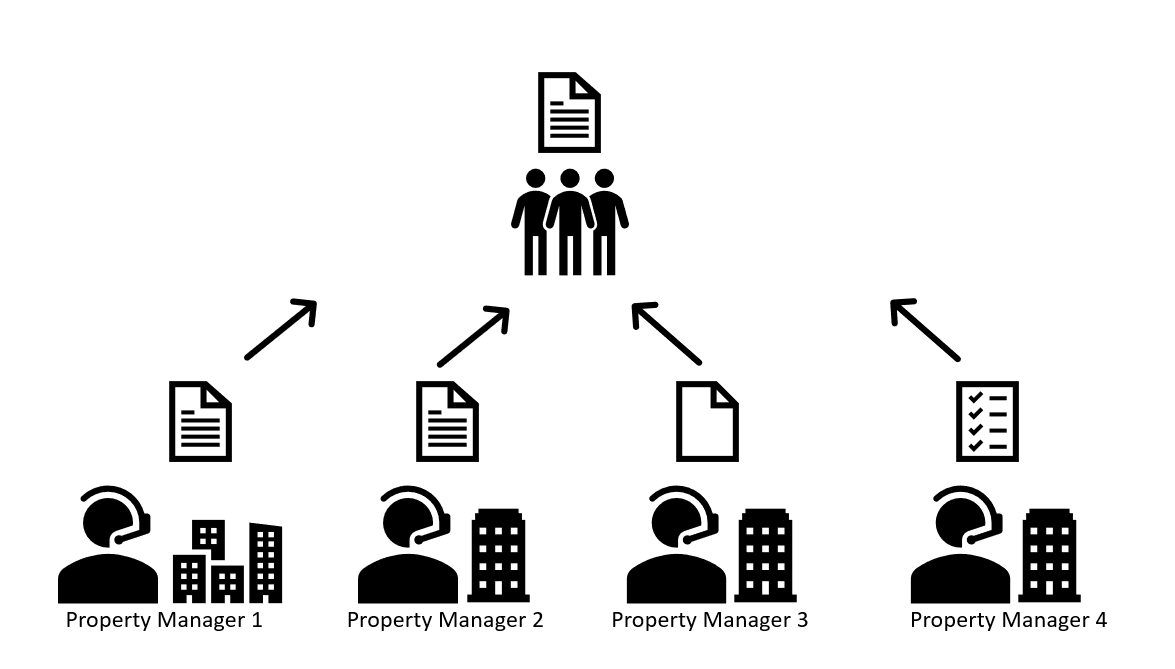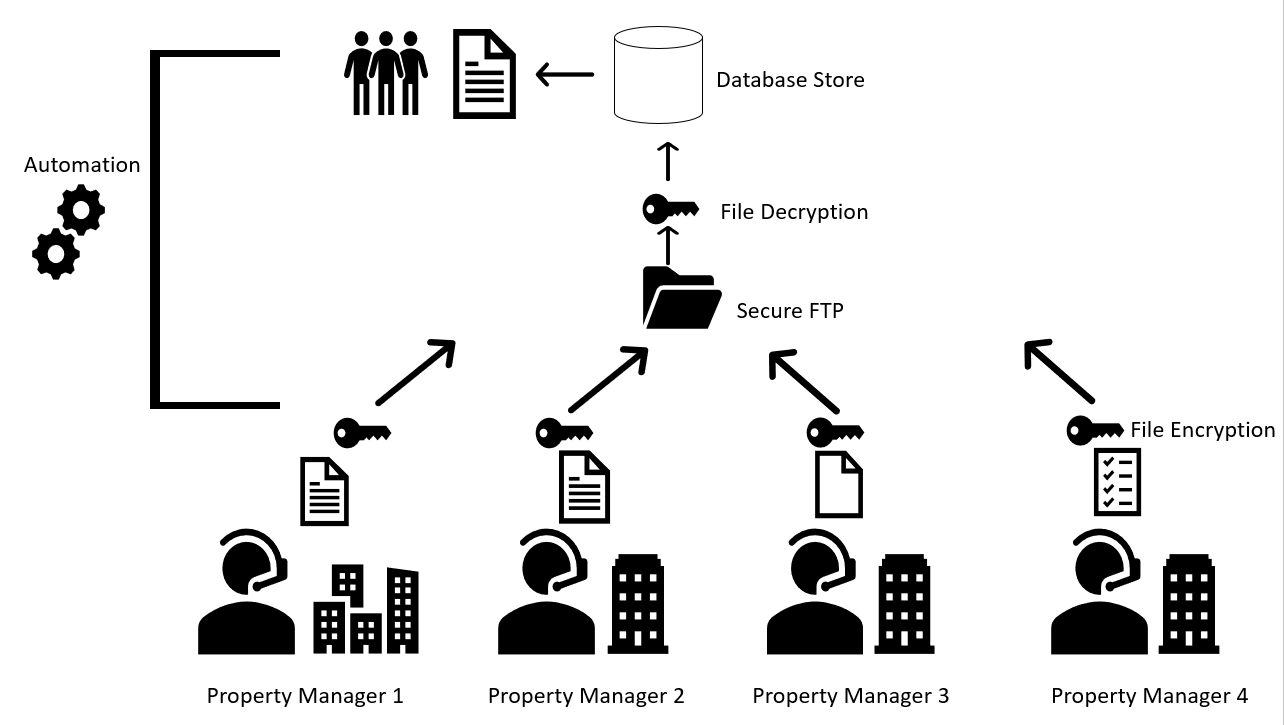One of the more common reoccurring problems seen in the real estate space is the disconnect between the data created and stored by the individual property managers and the transfer of that very data to the respective owners, operators and fund managers. In most scenarios, individual property managers are using management and accounting tools of their choosing or one that was already in production use prior to when the property was acquired. In this (very common) scenario, the owners end up with multiple properties and multiple property managers each using different systems, processes and accounting timelines. Let’s take a look at Bridging the Owner to Property Manager Data Gap.
In this situation, owners must employ a team of analyst’s whose job is to collect the different exported file formats from each manager, clean and consolidate into one central source, usually a massive Excel spreadsheet. This leads to a few common issues.

- Data is provided in different formats and a manual mapping exercise must take place every month end.
- All the manual steps and consolidation of data sheets introduce risk of dirty data and data errors.
- The manpower required could be spent elsewhere had the process been streamlined and automated.
- Data history is now preserved in a series of Excel sheets on a shared drive
- Files sent from managers to owners are usually sent via email. This introduces a security risk as well as a data retention problem.
The solution to this problem is not specific to the real estate space rather building safeguards and efficiencies into this process is a data transfer solution that can be implemented across industries that have to deal with disparate flat file data sources coming from out of the network. In a more common solution you have the following architecture.

- The property managers would be instructed to use easy to use and inexpensive encryption software like PGP, once their file processing is complete at month end.
- The files would then be saved to an SFTP such as ShareFile, ensuring secure file transfers. This process usually can be automated based on the source tools capabilities, but manual loads are not uncommon either.
- This is where the true automation is built. A process on the owner’s side using simple high-level data transfer languages can be used to download, decrypt and and archive the files from the SFTP automatically. This will allow raw files to be stored for future reference.
- Once the file is decrypted, the process would have a set of mapping and translation rules to convert and conform the data into a standard and clean format. This removes the risk of human related data errors that could be introduced.
- Data is stored to a database rather then an Excel document. This allows for larger datasets to be stored and queried by the analyst team. Data from the database can be extracted to Excel or a reporting tool for future analysis but the primary source of data remains the database, eliminating multiple copies of excel documents floating around the organization.
